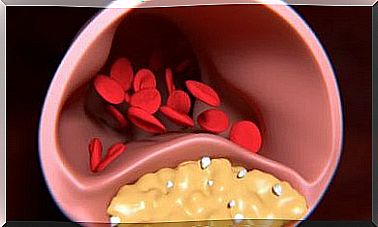10 Changes In Your Body When You Stop Eating Meat
Stopping eating meat can have its positives and negatives, so it is essential to know all the aspects before deciding to follow through a vegetarian or vegan diet.

Meat is an excellent source of protein. It contains B vitamins and minerals such as iron and zinc. Its consumption is particularly important in the accelerated phase of growth and development. What Happens In The Body When You Stop Eating Meat?
The complete elimination of daily meat consumption has consequences for your body. You should be aware that a meatless diet is not synonymous with health, as it excludes an important source of protein, vitamins, minerals, and other nutrients.
Is it good to stop eating meat?
According to a publication in Proceedings of the Nutrition Society , the meat is a food that has been part of the diet throughout human evolution. It is nutritionally relevant because it provides a significant amount of protein of high biological value and other essential nutrients.
So, is it good to stop eating meat? Answering this question can be complex. As we can see, meat provides essential nutrients for any healthy diet. There are nevertheless some controversy over its use, especially if it is red or processed meats.
The information published in the International Journal for Vitamin and Nutrition Research indicate that excessive consumption of red and processed meats increases the risk of total mortality, cardiovascular disease, type 2 diabetes and other noncommunicable diseases.
Experts and nutritionists, however, agree that moderate consumption shouldn’t come with any risks, especially if you choose lean cuts. So stopping eating meat is a personal decision that doesn’t always mean well-being. If in doubt, it is best to discuss it with a nutrition professional.

Changes You Feel When You Stop Eating Meat
A study published in Scientific and Technical Review emphasizes that a moderate meat consumption can help avoid the deficiency of certain essential nutrients, because it contains high amounts of protein and moderate doses of iron, zinc, selenium, vitamin D and vitamin B12.
This same research nevertheless concludes that stopping meat consumption may reduce the development of a wide variety of chronic diseases. So that could have beneficial effects on world food security. There is also growing concern about the sustainability of livestock production.
Is it appropriate to stop eating meat? Let’s take a closer look at the pros and cons of not eating meat. If you can see enough reasons to limit your intake, all the better. It is however best to consult a nutritionist to find out how to cover the nutrients lost by not consuming the food.
1. Weight loss
People who stop eating meat can lose several pounds because the body will stop absorbing fat from these foods. In addition, in the medium and long term, it helps reduce markers of inflammation, which are associated with being overweight.
However, it is essential to cover the protein requirements because it is a key macronutrient in metabolism and muscle health. It is found in legumes, white meats, fish, and other healthy foods.
2. Intestinal bacteria
The microflora of people who consume meat and vegetarians is very different , as the detailed in the Human Microbiome Journal . It seems that people who eat more plant-based foods have more beneficial bacteria.
However, rebuilding and improving your flora is not something you can do overnight. So that the swelling and gas does not go away instantly. This is because the intestine and pancreas will get used to plants and foods and enzymes will be reduced.
3. Skin health
The people who stop taking meat ensure that their skin improves , although there is no evidence to support this fact . According to a study published in 2017, by increasing the consumption of plant foods instead of meats, you get more antioxidants, which are essential for healthy skin. .

4. Increased fiber intake
By limiting the consumption of meats, it is advisable to increase the consumption of protein sources of plant origin. Thanks to this he is possible to obtain a higher fiber intake because plant foods generally contain this nutrient.
5. Cardiovascular health
A study published by JAMA Internal Medicine shows that excessive consumption of red and processed meat leads to an increased risk of cardiovascular disease and death.
Evidence shows that frequent consumption of these foods increases the risk of cardiovascular disease up to 7%. It is also associated with a 3% higher risk of all causes of death.
6. Less risk of diabetes
People who follow a vegetarian diet have a lower risk of metabolic syndrome, as detailed in this published study Current Diabetes Reports .
These are a set of risk factors associated with type 2 diabetes (non-insulin dependent), stroke and heart disease.

7. Nutrient deficiency
By not consuming meat, you will have a deficit of nutrients necessary for the proper functioning of your body. You will certainly be deficient in iodine, iron, and vitamins D and B12.
Fortunately, it is possible to balance this situation with careful diet planning. The nutritionist can guide you towards consuming legumes and other foods containing these nutrients.
8. Lack of flavor
Your taste buds react to the consumption of zinc which is concentrated in oysters and red meats. Therefore, when you leave the meat aside, you have to look for new food sources to absorb this mineral. Some options are white beans, nuts, whole grains, and dairy products.
9. Muscle health
Animal and vegetable proteins are needed to build and restore muscles after exercise he therefore, vegetarian and vegan athletes are advised to consume liquid protein right after exercise.
10. Less risk of depression
The evidence for the relationship between meat consumption and a greater tendency towards depression is not yet strong. However, a meta-analysis published in BMC Psychiatry does not exclude a relationship between excessive consumption of this food and this mental health disorder.
Stop eating meat, a personal choice
The evidence for meat consumption continues to generate mixed opinions today. In general, for most healthy people, eating meat is not a problem. However, it seems that limiting its consumption can have medium and long term benefits.









